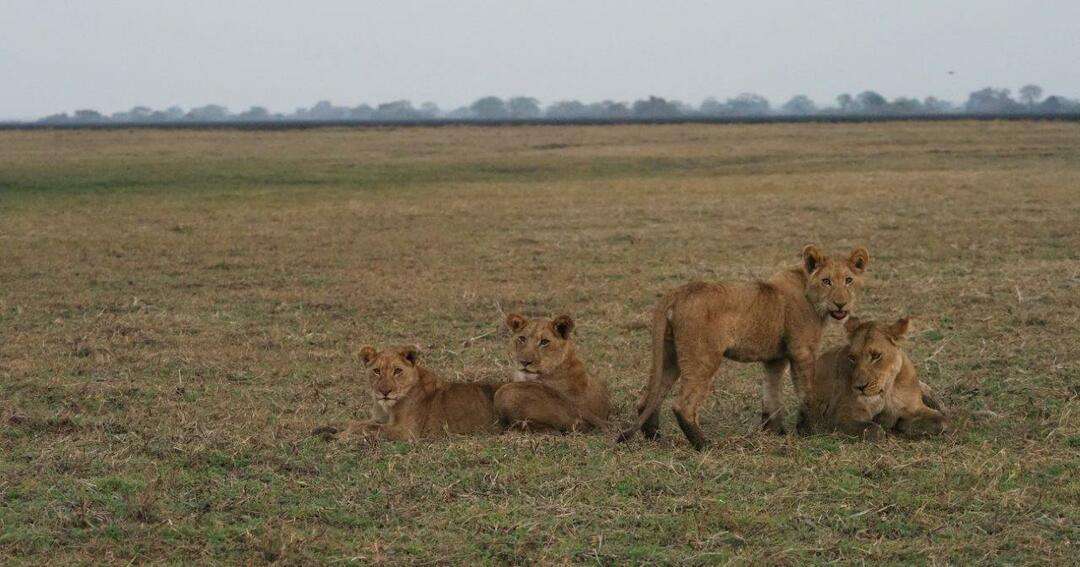The COVID-19 Pandemic has also placed Africa’s lions at significantly increased risk of poaching, and is stretching resources for protection of lions and other wildlife thin. The Lion Recovery Fund (LRF) was established by the Wildlife Conservation Network in 2017, in partnership with the Leonardo DiCaprio Foundation, to reverse this sharp decline in African lion populations. Wilderness Safaris is proud to have partnered with the LRF in their various lion conservation initiatives as well as to be assisting lion conservation projects through the Wilderness Wildlife Trust.
Panthera’s Kafue Law Enforcement and Wildlife Support Program (KLAWS), Zambia
In 2019, park rangers recovered on average of 25 snares from boundary areas of Kafue National Park (KNP), whereas in 2020 this spiralled to 136 snare recoveries. This was primarily due to the drastic drop in tourists and tourist-associated activities by safari operations in core protected areas due to COVID-19.
Kafue’s key lion prides need to be kept safe – essential for continued survival and recruitment of lions here.
During the COVID-19 pandemic, the LRF has however continued to provide critical funding for crisis lion protection and monitoring in Kafue, due to the significantly increased risk in poaching and the almost complete collapse in wildlife tourism. The lack of tourism activities has emboldened poachers to operate in prime lion habitat areas that were previously secured from poaching. As a result, two poaching related deaths of adult female lions were recorded in 2020 and there has been a marked increase in snaring. To counter this, two dedicated lion protection-monitoring teams were established. Each team provides constant presence around the 10 key lion prides, monitors pride composition and status of individuals (snares, injuries), and directs anti-poaching patrol efforts and patrol activities, according to poacher threat, including the presence of snares and the need for snare-sweeping of areas. Because almost all 10 prides presently have cubs, the safety of all adult lions is essential for continued survival and recruitment of lions in KNP.
Community Guardianship and Livestock Protection Programme: Lion conservation in the Boteti, Botswana
Human-lion conflict is a major contributor to lion mortality, and tolerance for livestock losses is low amongst many rural communities in Botswana and Zimbabwe. The Kavango-Zambezi Transfrontier Conservation Area (KAZA TFCA) is one of the last remaining strongholds for African lions, and connectivity within the Makgadikgadi-Hwange-Chobe landscape is vital for the long-term genetic diversity and survival of lions and other predators. Yet, farmers living alongside lion populations suffer regular livestock depredation and feel disassociated from the benefits that wildlife brings.
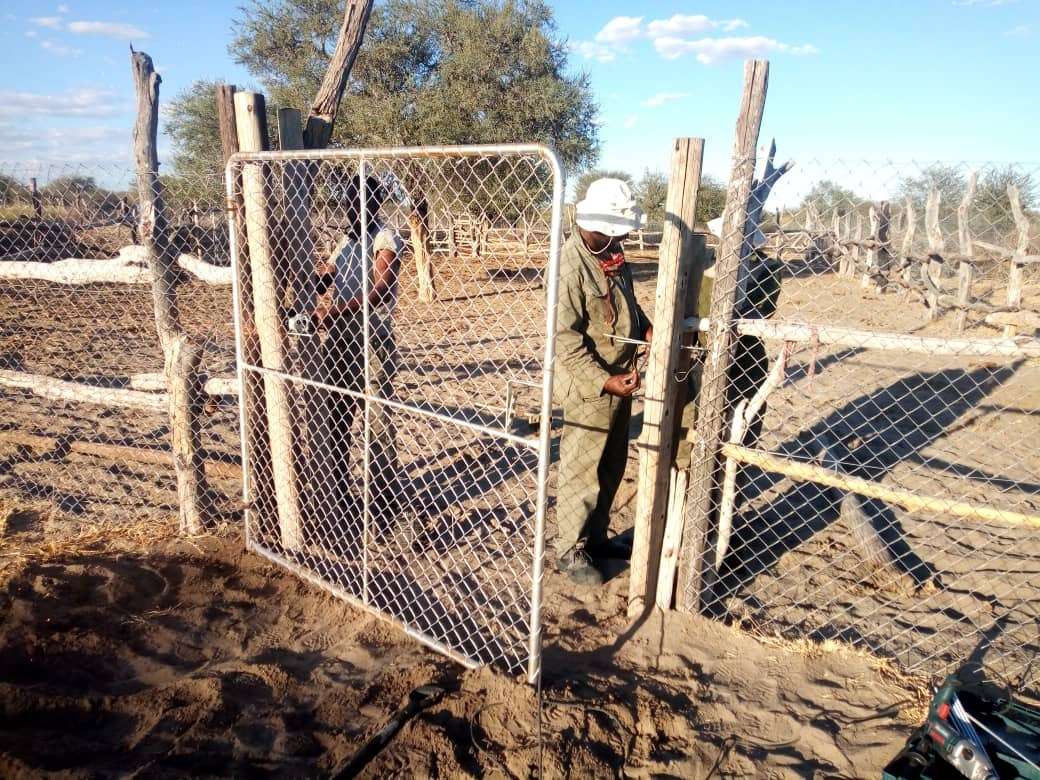
Construction of predator-resistant enclosures to mitigate livestock losses in the Boteti region
The LRF and the Wilderness Wildlife Trust provide ongoing support for human-wildlife conflict mitigation in Botswana, through the Community Guardianship and Livestock Protection Programme under the Wildlife and Communities Action Trust (WildCAT), an affiliate of the University of Oxford’s Wildlife Conservation Research Unit (WildCRU). This latest initiative, which commenced in August 2020, is also aiding in lion conservation in Botswana’s Ngamiland and Central districts.
The programme trains and employs local Community Guardians from the villages, who assess and deliver locally-appropriate solutions for conflict. The focus of this funding application was to help support the Boteti Project, operating since 2017 in the village of Khumaga and its surrounding cattle posts. This area borders the Makgadikgadi Pans National Park (MPNP), and is situated on an important wildlife connectivity corridor to the Central Kalahari Game Reserve, as well as north to the Okavango Delta and Hwange regions. A dual focus in this area was to provide educational workshops to help communities understand wild predator behaviour, with a particular focus on how to stay safe should they encounter a predator, and practical mitigation of livestock depredation through the construction of predator-resistant kraals.
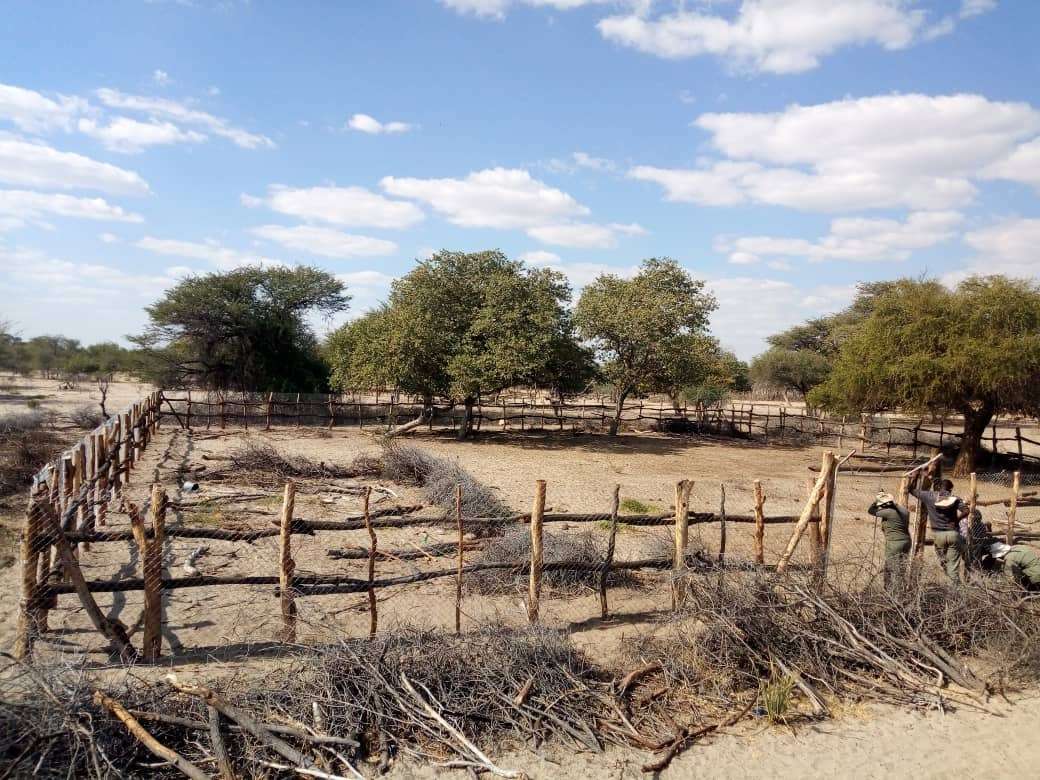
Even in the midst of the COVID crisis in 2020, 10 new predator-resistant kraals were constructed in conflict hotspots at cattle posts adjacent to the boundary with the MPNP in the Boteti area, taking the total number of these protected livestock enclosures up to 18. These enclosures use a simple combination of strong posts bolted together with cross-poles and 1.8 metre high diamond mesh to prevent predators gaining access. More than 1 300 head of livestock are now safeguarded, with these predator-proof kraals having proved 100% effective at preventing livestock losses to lions. Three full-time Community Guardians are also employed through the programme after undergoing an insightful five-day training workshop in Savuti in late 2020.
Lower than usual conflict was experienced during 2020, perhaps as a result of the increased human presence in rural areas as a result of unemployment due to COVD-19, and due to the positive impact of the project activities.
CLAWS Project: Lion conservation in the Eretsha Village area, Botswana
The LRF funds the CLAWS (Communities Living Amongst Wildlife Sustainably) Project in the northern Okavango Delta of Botswana. CLAWS works with local farmers to improve management of livestock to protect rangelands and also to reduce human-lion conflict in innovative ways. These efforts are designed to promote co-existence between people and lions and reduce the high-levels of retaliatory killing that occurred prior to the onset of the project. New research on the project suggests that these efforts are reducing conflict levels and improving tolerance for lions amongst local herders. Also part of their Pride in our Prides Project, livestock are protected in a large communal herd in the Eretsha Village area. A community committee has created rotational grazing plans (to reverse impact of overgrazing) and certified herders monitor livestock health and protect herd against predators (thereby reducing lion conflict). An alert system has also been created, which notifies villagers when lions approach livestock areas.
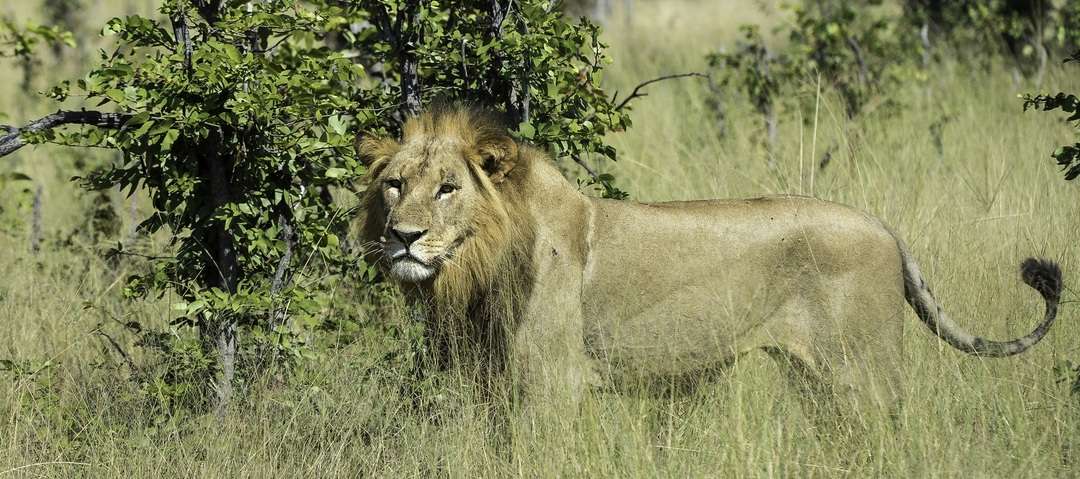
Lion is listed as Vulnerable on the IUCN Red List with only 20 000 remaining today on the African continent
Community Guardianship and Livestock Protection Programme: Lion conservation in Matabeleland, Zimbabwe
A collaborative partnership between two conservation organisations: WildCRU’s Trans-Kalahari Predator Programme (TKPP) and Victoria Falls Wildlife Trust (VFWT) also seeks to reduce human-lion conflict in north-western Matabeleland, Zimbabwe with the project site situated in one of the core lion areas within the Kavango-Zambezi Transfrontier Conservation Area (KAZA).
The project employs local Community Guardians around Hwange National Park, who act as ambassadors for both lions and the local community. They advise and train people on improved livestock husbandry techniques, assist with wildlife surveys and monitoring of conflict incidents. The guardians deliver an ‘Early Warning Lion Alert’ system to their network of local villagers via WhatsApp and SMS messages. The system monitors the movements of potential problem lions fitted with GPS tags, to provide warnings to farmers when lions move onto their land. These passionate and courageous young Africans also keep lions out of the community lands, often with the aid of only a vuvuzela (a plastic trumpet used at African football matches by fans). These mitigation methods are effective and we have seen a 50% reduction in livestock depredation since the programme was introduced in 2013.
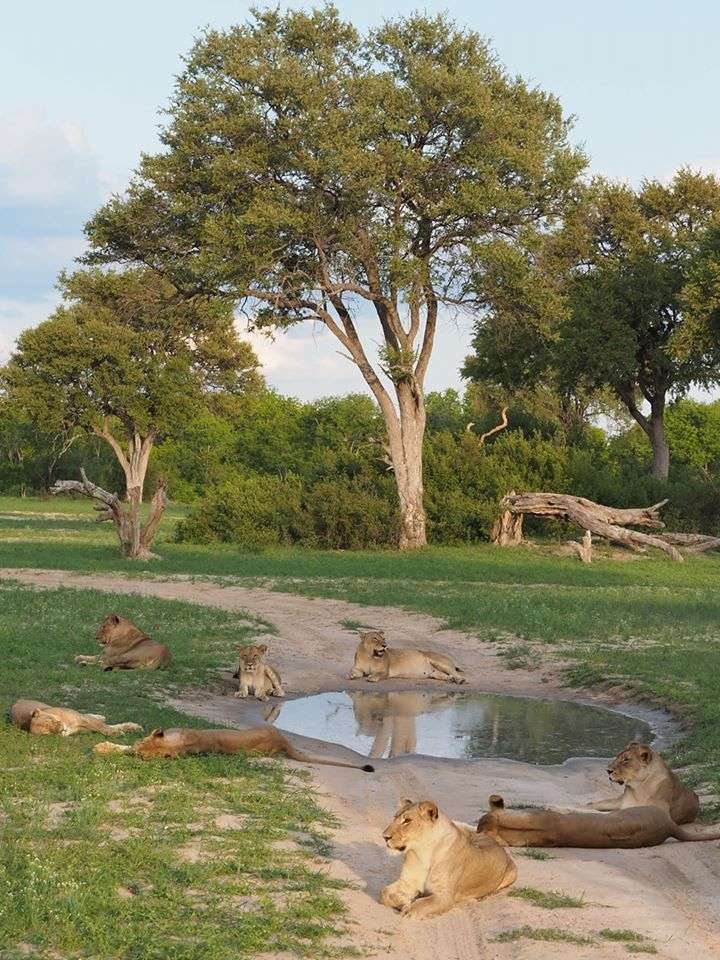
WildCRU’s Trans-Kalahari Predator Programme (TKPP) also seeks to reduce human-lion conflict around Hwange National Park
Practical livestock protection measures include the deployment of mobile bomas – protective overnight livestock enclosures constructed from PVC sheeting – which are situated in cropping fields to simultaneously protect livestock and improve impoverished, arable soil conditions. To date no livestock have been killed by predators when housed inside the mobile bomas. These techniques have resulted in a reduction in retaliatory killings of predators through effective protection of community livestock and improved herd management. Furthermore, in a region where people face significant food insecurity, households using mobile bomas on their fields have seen a 100% increase in crop yields.

Let’s plan your next journey
Ready?
When we say we’re there every step of the way, we mean it, literally. From planning the perfect circuit, to private inter-camp transfers on Wilderness Air, and easing you through Customs. We’re with you on the ground, at your side, 24-7, from start to finish. Ready to take the road less travelled? Contact our Travel Designers to plan an unforgettable journey.
